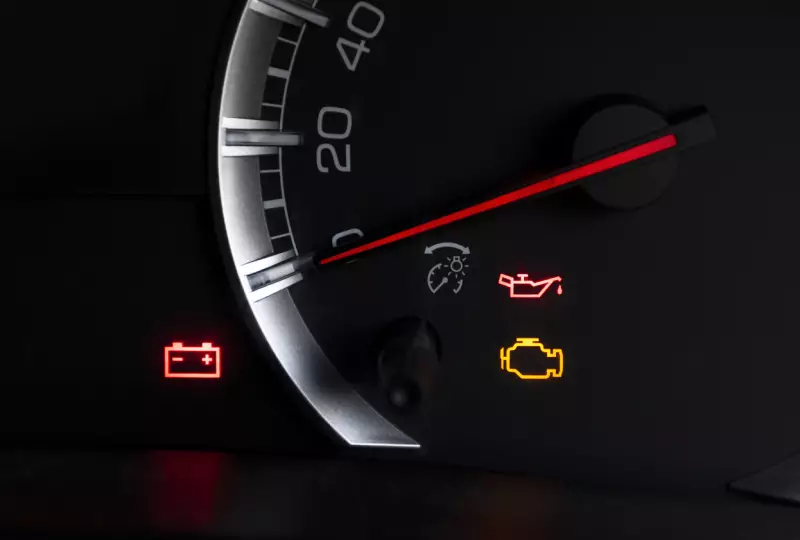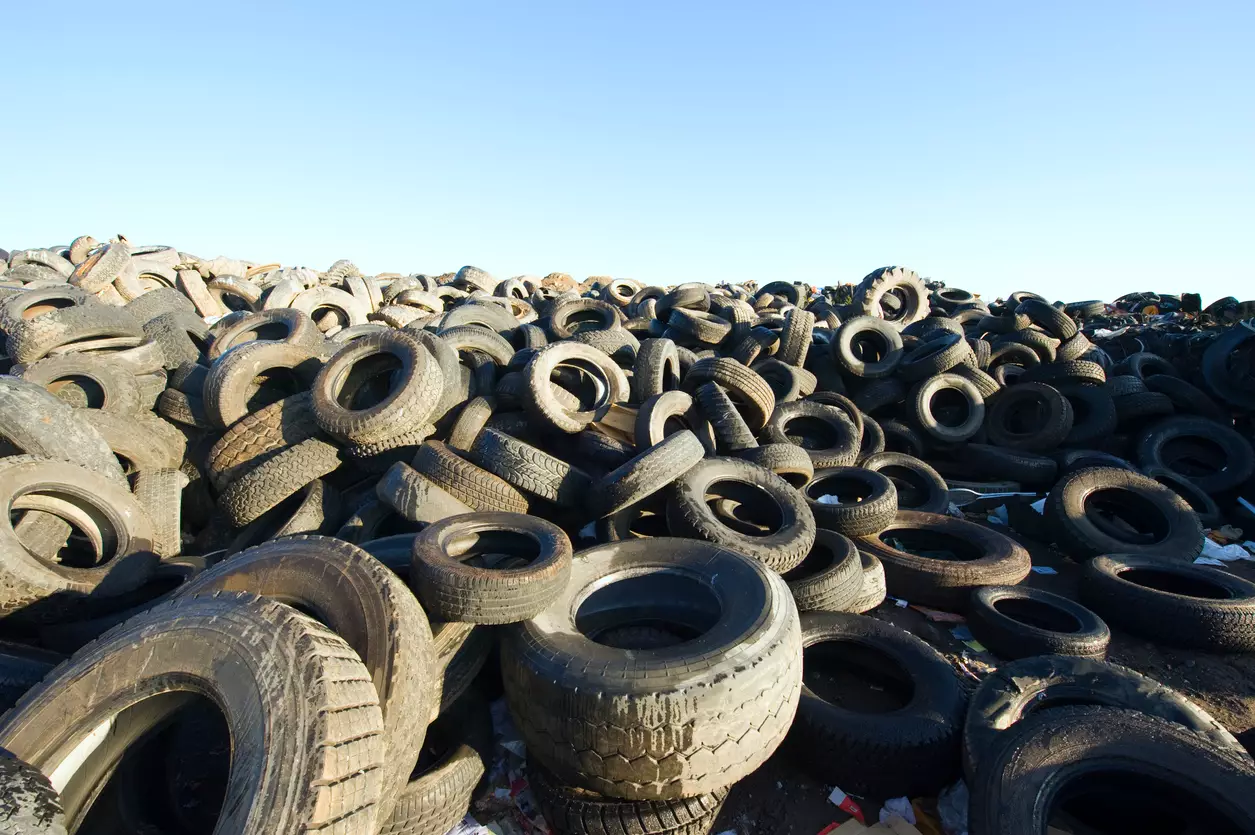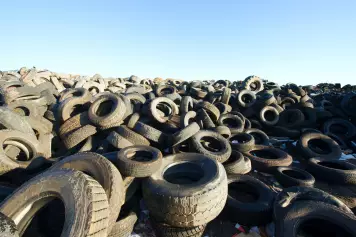Mechanics talk about rod knock regularly, and if the problem is mentioned to you, your vehicle will likely suffer from a serious engine issue that could lead to a full failure if it isn't addressed immediately. Knowing that car rod knock is an engine problem is a good place to start, but that doesn't tell you what's happening. Find out what is a rod knock, what symptoms rod knock comes with, and how the issue is normally resolved by skilled mechanics.
Rod Knock Meaning: What Parts are Damaged On Your Vehicle?
If you have a rod knock in your engine, you have worn connecting rod bearings. Most internal combustion engines are equipped with a crankshaft that converts the power from combustion into rotational power to drive your vehicle. The crankshaft gets its power from the engine's pistons. Each piston is connected to the crankshaft by way of a connecting rod and a connecting rod bearing. The bearing is the soft component in that connection and usually wears out much sooner than the crankshaft or the connecting rod. The connecting rod becomes loose as it wears and starts making unhealthy knocking noises. Just knowing what causes a rod knock helps you understand where the problem lies within your vehicle's engine, but it doesn't help you identify the issue in the first place. Along with understanding what is rod knock, you should know its common symptoms as well. Recognizing these symptoms is crucial in addressing this and other common car problems effectively.
What Does Rod Knock Sound Like?
If you've ever wondered, "What does a rod knock sound like?" it has a highly recognizable sound. While idling, the engine sounds like it's loudly ticking or almost smacking. When the accelerator is pressed down, the slapping or ticking noise intensifies and speeds up dramatically. It's important to note that any slight engine noises you hear up top from your camshaft will be much slower than rod knock noises from down below. That's because the crankshaft spins twice as fast as the camshaft. If you hear rapid knocking noises from the lower end of your engine, the problem is likely rod knock.
Common Rod Knock Symptoms
Learn to recognize rod knock symptoms, and you'll be able to diagnose the problem when you start showing signs of rod knock. Most cases of rod knock come with a loud knocking noise, but there are many other likely symptoms as well. Learn the most common cluster of symptoms that come along with the problem, and you'll know how to evaluate the problem more accurately.
Oil Pressure, Metal Shavings, and Dirty Exhaust
The knocking noise is the most obvious symptom of rod knock troubles, but it's not the only symptom. It's common for a vehicle with rod knock to suffer from oil losses and dirty exhaust as well. Typically, in different types of car engines, when there is a problem with rod knock, oil leaks into the cylinders and gets combusted and released through the exhaust system. You'll notice your oil level drops faster, you'll likely see blue or gray smoke emitted from the tailpipe, and you may note metal shavings in your oil if you check it. All these issues can be linked to rod knock, though they could also be caused by other engine issues. When you have some of these symptoms along with the knocking noise, you can assume you have a vehicle with a rod knock issue.
How to Fix A Rod Knock
Determining how to fix a rod knock is really the job of a skilled mechanic who understands how to fully evaluate your engine problem. There are several potential repairs that must be performed to resolve a rod knock effectively. The most common repair to be performed is to replace the connecting rod bearings in your engine. It's likely that any knowledgeable mechanic will also perform an oil change, replace your vehicle's cylinder head bolts, swap the seals, and fully flush the engine. The cooler lines may also be replaced in your vehicle if the mechanic deems that work necessary.
All these tasks may potentially have to be performed to bring your engine back to working order and that's if more serious damage isn't done to the crankshaft, the pistons, the connecting rods, or other engine components. A standard rod knock repair that's caught quickly can be resolved by most mechanics for between $1,500 and $3,500, depending on the work required, but you must have the problem evaluated by a local mechanic to get an accurate estimate.
What Causes a Rod Knock

Before your vehicle suffers from a rod knock, you can learn the most common causes that lead to the issue and prevent it from occurring. By handling routine car repair and maintenance, like oil checks and replacements, caring for your belt tensioners and pulleys, and using the proper fuel, you'll reduce your risk of developing issues with rod knock.
Not Enough Engine Oil
If your engine runs without enough oil for too long, the connecting rod bearings dry out and suffer from significant wear. Even a short period without enough oil can lead to serious damage to your engine. This is why it's important to check your oil level regularly and to replace your vehicle's oil before engine problems develop.
Infrequent Oil Changes
Allowing old and worn engine oil to circulate around your vehicle's engine can lead to serious issues with the engine over time. One of those issues is the development of a rod knock problem. Replace your engine oil regularly by following your manufacturer's guidelines to protect your vehicle's engine and components.
Issues Confused with Rod Knock
Rod knock is frequently misunderstood or confused with other issues. This confusion stems from the similar sounds and symptoms that various engine problems can produce, making it challenging to pinpoint the exact cause without a thorough vehicle inspection.
Failing Belt Tensioners or Pulleys
Failing belt tensioners and pulleys won't actually cause rod knock, but they can create rattling noises that imitate rod knock. If your serpentine belt tensioner or pulley goes bad, having them replaced is a simple task that can be completed for a low cost.
Bad Knock Sensor
While it's rare, the knock sensor in your engine can go bad, preventing your engine from knowing when it's suffering from improper combustion and other issues that result in excess vibration and knocking. A faulty knock sensor can lead to knocking issues that are resolved with the replacement of the sensor.
An Engine Detonation
When your engine doesn't have enough fuel to combust properly, it's known to be "running lean". Running lean can lead to an issue known as detonation knock. This is where many small combustions occur rapidly from improper spark timing, the buildup of fuel, the wrong fuel octane rating, and from failing fuel injectors, fuel filters, or fuel pumps. Having these issues resolved should clear the detonation knock.
A rod knock is a serious issue that should be professionally diagnosed and repaired as quickly as possible. Talk with a local professional about the issue as soon as possible to preserve the health of your engine, and follow oil maintenance best practices to prevent the issue from occurring in the first place. To check any vehicle you plan to purchase for these types of issues, consider getting a vehicle history report so you know what you’re buying!




















